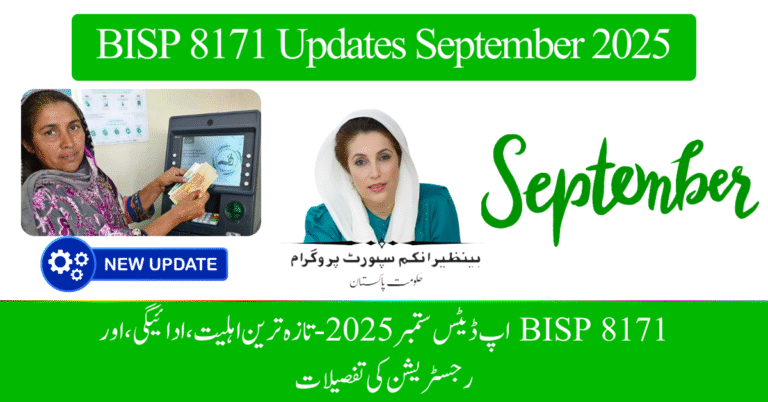Laptop Scheme 2025 Shocking Update – Missing Laptops Issue Finally Explained
The Prime Minister’s Laptop Scheme 2025 has once again come into the spotlight. Recently, concerns have emerged regarding laptops missing from the distribution process, raising questions about transparency, beneficiaries’ rights, and the management of this educational program. This article reveals the details behind the issue, explains how students can check their eligibility, and what steps the government is taking to resolve the matter.
یہ معاملہ ان طلباء اور طالبات کے لئے خاص اہمیت رکھتا ہے جو وزیراعظم کے لیپ ٹاپ اسکیم کے تحت اعلیٰ تعلیم کے مواقع سے مستفید ہونا چاہتے ہیں۔ لیپ ٹاپ کی تقسیم میں مبینہ کمی یا غلط اندراجات کی وجہ سے کئی مستحق طلباء کو ان کا حق نہیں مل سکا جس پر طلباء اور والدین دونوں تشویش میں مبتلا ہیں۔
What is the Prime Minister’s Laptop Scheme?

The Prime Minister’s Laptop Scheme (PMLS) is a flagship initiative under the Prime Minister’s Youth Program aimed at promoting digital learning and bridging the technology gap among Pakistani students. Thousands of laptops are distributed every year to university students, postgraduate scholars, and technical diploma holders.
The scheme supports:
-
Enhancing IT skills for youth
-
Promoting online education and research
-
Strengthening Pakistan’s digital economy
-
Ensuring equal access to technology for all provinces
The Issue of Missing Laptops – What Happened?
In the September 2025 update, reports surfaced that several laptops allocated under the scheme were missing or not delivered to the rightful students. The Higher Education Commission (HEC) confirmed discrepancies in the distribution lists, leading to frustration among applicants.
Possible Reasons Behind the Problem
-
Data entry errors in student records
-
Duplicate registrations or ineligible applicants are being included
-
Delayed verification by universities
-
Possible cases of mismanagement or corruption
This has raised serious concerns about accountability and the transparency of the scheme.
Student Reactions and Concerns
Beneficiaries across Pakistan, especially from Punjab, Sindh, Khyber Pakhtunkhwa, and Balochistan, expressed disappointment over the missing laptops issue. Many students claim they were marked as eligible on the portal but never received the device.
Universities, on the other hand, argue that the issue largely stems from incorrect CNIC entries, delayed document verification, or mismatched student data.
Government Response to the Laptop Missing Issue
The government has acknowledged the issue and announced corrective steps to ensure no deserving student is left out. According to official sources, the following actions are being taken:
-
Fresh verification of all student data through HEC
-
Establishment of a complaint redressal cell for students
-
Tracking system for laptop distribution
-
Coordination between universities and HEC to identify missing beneficiaries
This move is expected to help students reclaim their right under the Prime Minister’s Youth Laptop Scheme 2025.
How to Check Laptop Status Online?
Students can verify whether their laptop is missing or delayed through the official PM Youth Program Portal.
Steps to Check:
-
Visit the official pmyp.gov.pk website
-
Enter your CNIC number in the status box
-
Review eligibility details and distribution status
-
If marked as “issued” but not received, file a complaint online
Complaint Procedure
-
Fill the grievance form on the portal
-
Attach your university enrollment proof
-
Keep a screenshot of the submission for follow-up
This process will help track whether the missing laptops are a clerical error or a genuine delivery issue.
Eligibility Criteria for Laptop Scheme 2025
To avoid confusion, it’s important to review the eligibility conditions.
Who Can Apply?
-
Students of public sector universities recognized by HEC
-
Students enrolled in MS, MPhil, and PhD programs
-
Undergraduate students meeting GPA requirements
-
Students of government-affiliated technical institutions
Who is Not Eligible?
-
Students of private universities
-
Those who have already received a laptop in previous schemes
-
Students failing to meet academic requirements
-
Applicants with invalid CNIC or fake entries
Impact of the Missing Laptop Issue
The laptop scheme was designed to strengthen digital education in Pakistan. However, the mismanagement and missing laptops have negatively impacted:
-
Trust in government programs
-
Student morale and motivation
-
Access to online resources for poor students
-
University credibility in handling youth initiatives
Experts believe that if this issue is not resolved quickly, it will undermine the credibility of future government scholarship and technology programs.
Future of the Prime Minister’s Laptop Scheme
Despite the missing laptops controversy, the scheme remains one of the most impactful initiatives for students. The government has announced that the next phase will include stricter verification to avoid the repetition of this problem.
Some proposed reforms include:
-
Use of blockchain-based tracking systems
-
SMS notifications for laptop distribution
-
Third-party audits for transparency
-
Direct delivery through courier services to students’ addresses
These reforms will ensure fair distribution and restore students’ confidence.
Steps for Students Affected by Missing Laptops
If you are a student who applied and did not receive a laptop, here’s what you should do:
-
Check your eligibility status online
-
File a complaint immediately with HEC
-
Contact your university administration for confirmation
-
Save all correspondence for future proof
-
Stay updated with September 2025 announcements
This will increase your chances of recovering your rightful laptop under the Prime Minister’s scheme.
Conclusion
The Prime Minister’s Laptop Scheme 2025 remains a valuable step toward digital empowerment in Pakistan. However, the recent missing laptops issue highlights the need for better transparency, accountability, and monitoring. Students should actively check their status online, file complaints if necessary, and stay informed about government updates.
If implemented effectively, this scheme can continue to benefit millions of students and play a vital role in making Pakistan a digitally strong nation.








